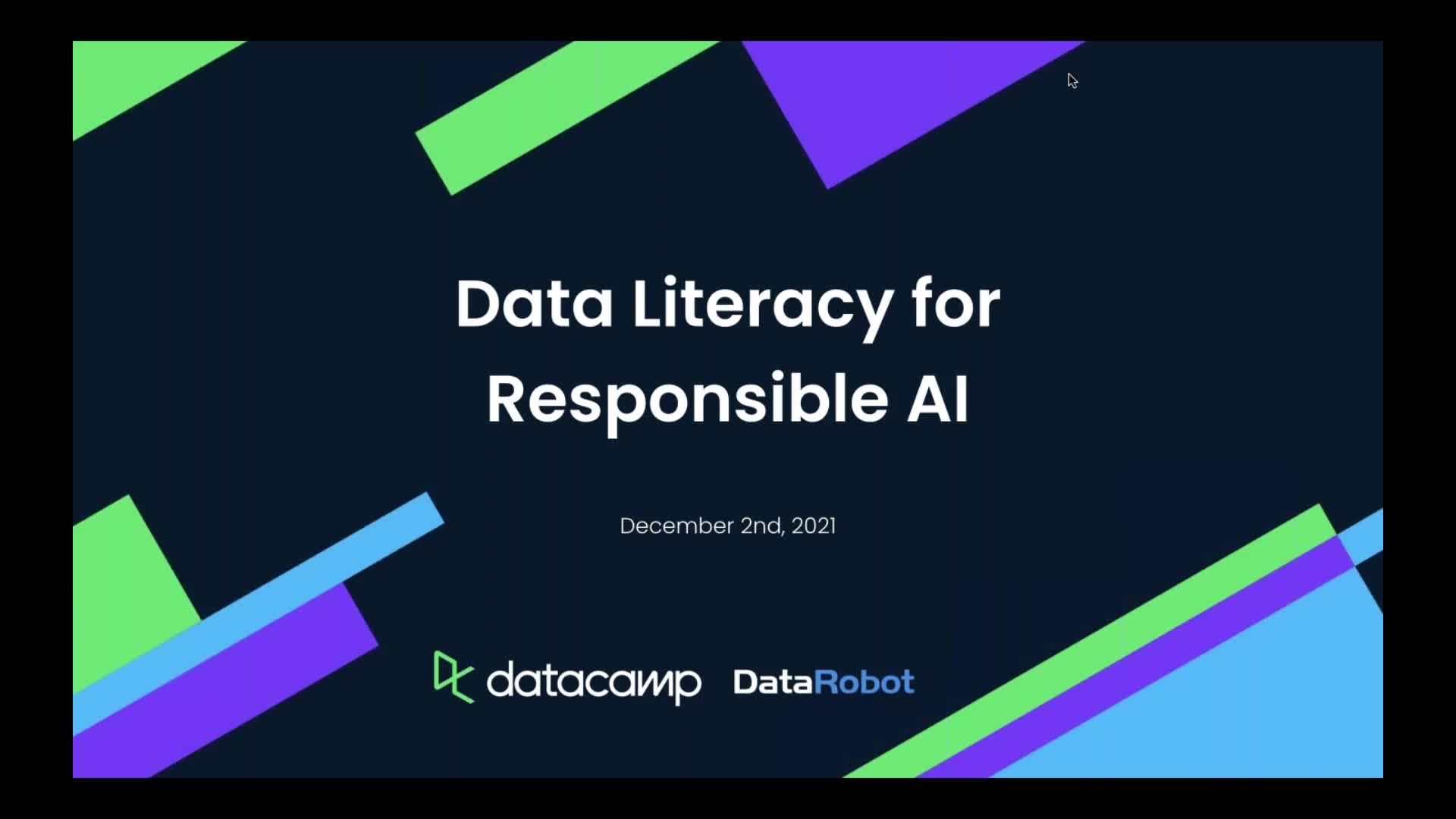Saltar al contenido principalMás información





Altavoces


Ted Kwartler

Haniyeh Mahmoudian, PhD
Global AI Ethicist, DataRobot
¿Entrenar a 2 o más personas?
Obtenga acceso de su equipo a la biblioteca completa de DataCamp, con informes centralizados, tareas, proyectos y másRelacionado
infographic
Data Literacy for Responsible AI
Learn how data literacy fuels responsible AIwhite paper
Data Literacy for Responsible AI
Learn how data literacy is the currency that powers responsible use of AIwhite paper
The Learning Leader's Guide to AI Literacy
Find out how learning leaders should be approaching AI literacy within their organization, focusing on the what, why, and how of fostering organization-wide AI literacy.white paper
The Learning Leader's Guide to AI Literacy
Find out how learning leaders should be approaching AI literacy within their organization, focusing on the what, why, and how of fostering organization-wide AI literacy.webinar
Spreading Data & AI Literacy Across Your Organization
Learn how to devise a data and AI strategy that aligns with your business strategy, and how to combine technology and training to increase the data and AI literacy across your company for business success.webinar
Spreading Data & AI Literacy Across Your Organization
Learn how to devise a data and AI strategy that aligns with your business strategy, and how to combine technology and training to increase the data and AI literacy across your company for business success.Join 5000+ companies and 80% of the Fortune 1000 who use DataCamp to upskill their teams.
Loved by thousands of companies
